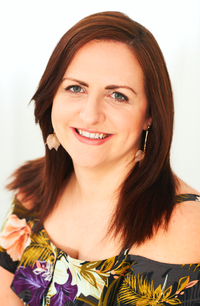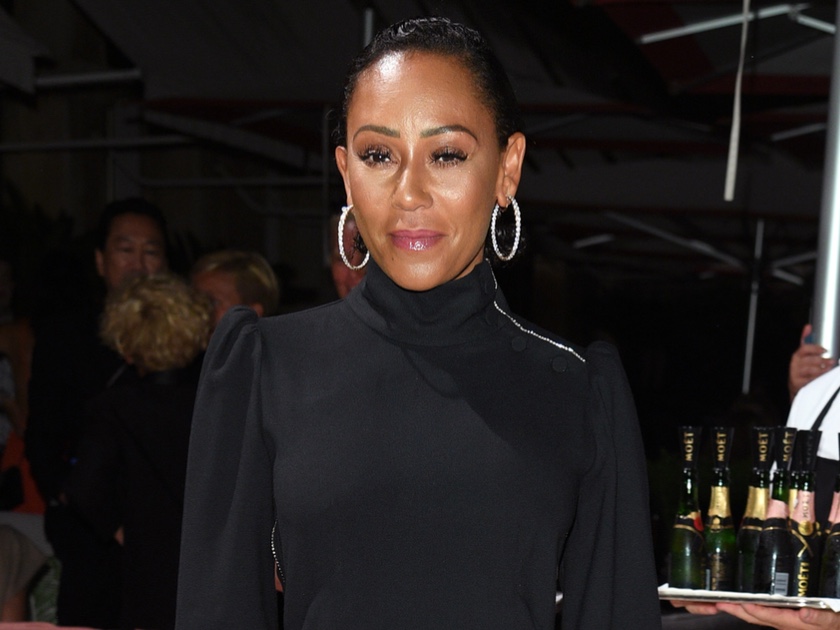‘Isolation is a victim’s worst nightmare’ Spice Girl Mel B offers support to victims of abuse during lockdown


Parenting advice, hot topics, best buys and family finance tips delivered straight to your inbox.
You are now subscribed
Your newsletter sign-up was successful
Being told to ‘stay at home’ by the government has been hard for many, but those living in abusive environments are no doubt feeling more trapped than ever.
Like the deadly coronavirus, domestic abuse isn’t confined to any particular section of the population, but the big difference is that its victims often suffer in silence for many years.
Refuge – the UK’s largest domestic abuse charity – has reported an alarming 120% rise in calls in a 24-hour period since lockdown measures began on 23 March.
One woman who says she knows what it feels like to be trapped in an abusive relationship is Spice Girl Mel B, who has spoken of suffering while with her ex-husband Stephen Belafonte.
It’s been over three years since she made the break, but this current world health crisis and its effect on abuse victims resonates with Mel, who wants to help others regain control of their lives.
Clearly affected by how the lockdown rules were impacting victims’ lives, Mel, 44, spoke out on Twitter. She said, ‘Coronavirus isolation is our worst nightmare after years of torture at [the] hands of abusers.’ Mel spent 10 years with her former partner until the death of her father, Martin, gave her the strength to leave Stephen in December 2016 and reconnect with her family.
Since then, she’s worked closely with the charity Women’s Aid – of which she is patron – to help others gain the courage to escape, and to raise vital funds for the charity. The mum-of-three, to daughters Phoenix Chi, 21, Angel, 13, and Madison, eight, urged her followers, ‘Donate now – Women’s Aid, we need this more than ever to help the ones that are trapped in with their abuser.’
Parenting advice, hot topics, best buys and family finance tips delivered straight to your inbox.
Mel also backed government guidance for victims. Home Secretary Priti Patel has clarified, ‘While our advice is to stay at home, anyone who is at risk of, or experiencing, domestic abuse, is still able to leave and seek refuge.’
Life after leaving
In her autobiography, Brutally Honest, multimillionaire Mel told how at the time she fled her marriage she was only able to access around £800. And she revealed some things that helped rebuild her life: don’t be scared of leaving with little or nothing – ‘I didn’t care,’ wrote Mel. ‘I was happy. My kids were happy.’
Track down old friends – Mel was worried her old pals wouldn’t care any more, but she was pleasantly surprised. ‘“Melanie, you’re back,” was largely the response I got,’ she said.
Reconnect with the outside world – ‘I got my own phone and my own computer. I linked myself back to the world. I felt amazing… once you leave a toxic relationship, your life is suddenly perfect.’
Be able to say ‘I need help’
Having admitted in her book that she ‘kept silent for a decade’ to protect herself and her children, Mel now wants women living with domestic abuse to be able to break the ‘conspiracy of silence’ and speak up. She explained, ‘Abuse thrives in silence like a cancer. Everyone guesses what is going on, but if you don’t say anything, no one can know for sure… We need to be able to say, “I’m in trouble. I need help”.’
Ex-husband Belafonte has always denied the allegations of abuse, but Mel said, ‘When someone takes over your life so completely, it should be clear that they don’t have your best interests at heart.’ And while she knows it’s never simple to just ‘walk away’, she also acknowledged, ‘For a hell of a lot of women out there, it’s because they don’t have the money to leave.’
Help is out there
Lisa Johnson, Manager of Direct Services for the charity Women’s Aid, reiterated that abuse victims should be entitled to emergency/temporary accommodation.
‘Make your council aware you are unintentionally homeless due to domestic abuse, and it is unsafe for you to return home,’ she said.
She also advised those too scared to leave to rehearse an escape plan to help them get away safely in an emergency and added, ‘If you are continuing to go out for your daily exercise alone, make phone contact with family or friends but afterwards ensure you lock your phone so your abuser is unable to access it.
Pack an emergency bag and hide it somewhere safe [eg, in the garden or a friend’s garage]. Keep with you any emergency phone numbers [the police, your GP, your social worker and your local domestic abuse service], a small amount of cash and a mobile phone. If you suspect your partner is about to attack you, go to a lower-risk area of the house, near a way out. If you have children, teach them to call 999 in an emergency, or ask trustworthy neighbours to call the police if they hear sounds of a violent attack. Remember: domestic abuse is a crime and you should always call 999.’
✱ Visit Women’s Aid or use the Live Chat service from 10am to 12pm weekdays at or email helpline@womensaid.org.uk
✱ Turn2Us help people access the money available to them – call 0808 802 2000
✱ Surviving Economic Abuse has resources and guides for women experiencing financial abuse.

Selina is a Senior Family Writer for GoodtoKnow and has more than 16 years years of experience. She specialises in royal family news, including the latest activities of Prince George, Charlotte, Louis, Archie and Lilibet. She also covers the latest government, health and charity advice for families. Selina graduated from the University of Sheffield in 2006 with a degree in Journalism, and gained her NCTJ and NCE qualifications. During her career, she’s also written for Woman, Woman's Own, Woman&Home, and Woman's Weekly as well as Heat magazine, Bang Showbiz - and the Scunthorpe Telegraph. When she's not covering family news, you can find her exploring new countryside walking routes, catching up with friends over good food, or making memories (including award-winning scarecrows!)